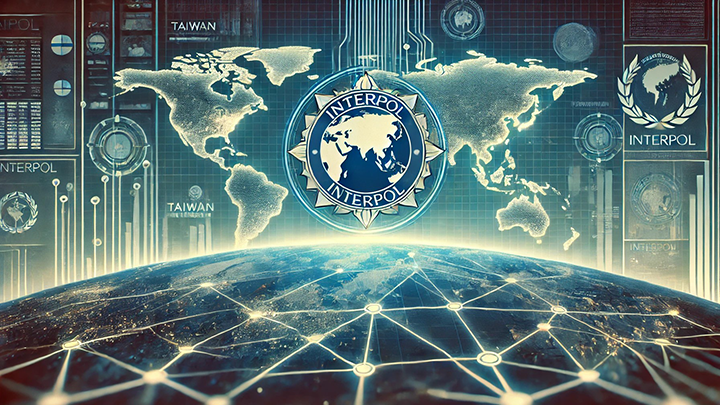Why the World Can’t Afford to Keep Taiwan Out of Interpol

Brian Iselin
Executive Summary
Taiwan’s exclusion from the International Criminal Police Organization (Interpol) presents a critical gap in the global effort to combat transnational crime. As criminal networks become more sophisticated, particularly in areas such as cybercrime, human trafficking, and terrorism, seamless international cooperation is essential. Despite Taiwan’s strategic importance in the Asia-Pacific region and its advanced law enforcement capabilities, it remains excluded from Interpol’s systems, creating a vulnerability in the global security framework.
Without access to Interpol’s I-24/7 communications system, Taiwan cannot engage in real-time information exchanges crucial for tracking criminal activity, which hampers its ability to combat transnational threats effectively. Taiwan’s geographic position at the crossroads of many illicit activities, combined with its exclusion from Interpol, weakens the global law enforcement response. Taiwan’s observer status in Interpol would not only benefit its own security efforts but also strengthen international crime-fighting capabilities.
The push for Taiwan’s inclusion has gained momentum in recent years, with legislative efforts and diplomatic campaigns from countries like the United States, Japan, and members of the European Union. Recent efforts have also focused on revisiting the misuse of UN Resolution 2758, which has often been wrongly interpreted to exclude Taiwan from international organizations. Could correcting this misinterpretation open the door for Taiwan’s participation in specialized agencies like Interpol at the next Interpol General Assembly?
Related Publications
-
The US and EU, and the Emerging Supply Chain Network: Politics, Prospects, and Allies
The Global Supply Chains have evolved from simply logistical achievements to being the bedrock of the global economy. Driven by technological advances and geopolitical shifts, this transformation underscores the critical […]
-
Hegemony at a Crossroads: The Inverse Dynamics of China’s Global Strategy
Here is my bold statement. Hard power projection decimates soft power but only for authoritarian states. In the early 21st century, I was living in Beijing and at that time […]
-
Safeguarding intellectual property in the wake of digital authoritarianism: An Interview with DR. REBECCA SPYKE KEISER
Dr. Rebecca Spyke Keiser is the Chief of Research Security Strategy and Policy (CRSSP) at the National Science Foundation (NSF). The U.S. National Science Foundation is an independent federal agency […]
-
The Economic Leash: China’s Financial Tethers and Global Power Plays
China’s emphasis on Gross Domestic Product (GDP) growth and its integration into global markets have allowed it to wield significant influence internationally. Nonetheless, this focus on rapid expansion has created […]
-
Elevating Democracy via Transatlantic Collaboration
In collaboration with the U.S. Embassy in Stockholm, the Institute for Security and Development Policy (ISDP) organized a series of conference events from March 11 to 14, 2024, held in […]




